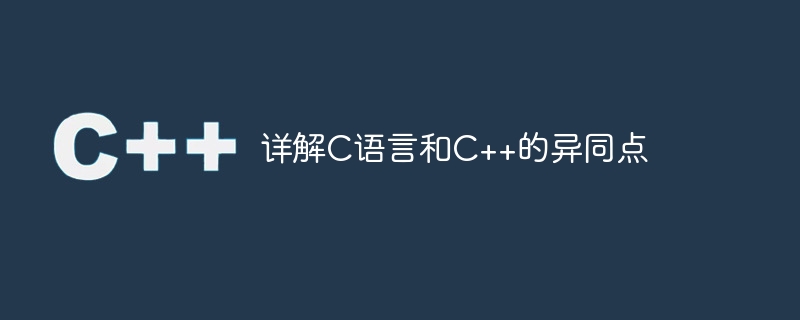

Similarities and differences between C language and C
C language and C are two commonly used programming languages. They have many similarities, but they also have many differences. . This article will introduce the similarities and differences between C language and C in detail, and illustrate them with specific code examples.
1. Similarities:
2. Differences:
The following is a code example to show the difference between C language and C in object-oriented aspects:
C language example:
#include <stdio.h>
struct Circle {
double radius;
};
double getArea(struct Circle c) {
return 3.14 * c.radius * c.radius;
}
int main() {
struct Circle myCircle;
myCircle.radius = 5.0;
double area = getArea(myCircle);
printf("The area of the circle is: %f
", area);
return 0;
}C Example:
#include <iostream>
class Circle {
private:
double radius;
public:
Circle(double r) : radius(r) {}
double getArea() {
return 3.14 * radius * radius;
}
};
int main() {
Circle myCircle(5.0);
double area = myCircle.getArea();
std::cout << "The area of the circle is: " << area << std::endl;
return 0;
}As can be seen from the above examples, C uses classes to encapsulate data and methods, which is more in line with object-oriented thinking, while C language requires the use of structures and functions to achieve similar functions. This is also a reflection of the fact that C is more flexible and scalable than the C language.
To sum up, C language and C have many similarities in terms of syntax, data types, control statements, etc., but there are major differences in object-oriented, exception handling, type checking, etc. The choice of which language to use should be determined based on specific needs and projects. Choosing the appropriate language according to different situations can better improve programming efficiency and code quality.
The above is the detailed content of Detailed explanation of the similarities and differences between C language and C. For more information, please follow other related articles on the PHP Chinese website!




